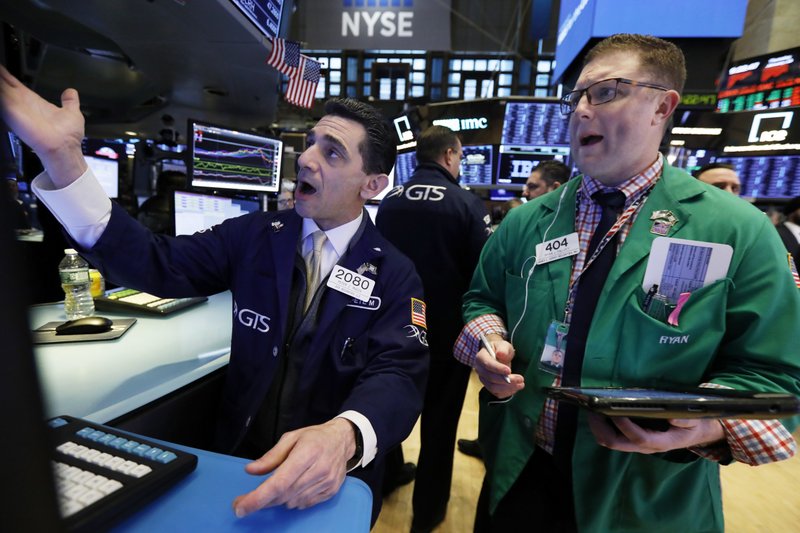NEW YORK -- A day of back-and-forth trading Thursday ended with the fifth gain in a row for U.S. stocks. Industrial companies like Boeing and General Electric rose while retailers fell as Macy's suffered its biggest loss of all time.
The S&P 500 index added 11.68 points, or 0.5 percent, to 2,596.64. The Dow Jones industrial average gained 122.80 points, or 0.5 percent, to 24,001.92 after it fell 175 points in the morning.
The Nasdaq composite rose 28.99 points, or 0.4 percent, to 6,986.07. The Russell 2000 index of smaller-company stocks picked up 6.63 points, or 0.5 percent, to 1,445.43.
Stocks struggled in the early going and the Dow lost 175 points after U.S. and Chinese officials wrapped trade talks in Beijing. Transportation and machinery companies climbed after the U.S. trade representative said China agreed to buy more agricultural and manufactured products.
Macy's said its sales over the holidays were worse than expected and slashed its annual profit and sales forecasts. Kohl's and L Brands also posted disappointing results and a wide variety of retailers plunged as investors worried that the stock market's December plunge stopped some shoppers from spending as much as they had planned.
"High-end consumers, even though they're making decent money [and] the economy is going on relatively strong, it may have affected their willingness to splurge over the holidays," said Ken Perkins, president of the research firm Retail Metrics. "It was not good timing at all.
U.S. negotiators said China's delegation pledged to buy more energy and agricultural products and manufactured goods. That helped Boeing climb 2.6 percent to $352.61 and General Electric jumped 5.2 percent to $8.94 while Deere rose 3.1 percent to $159.12.
However, that negotiating point is considered a relatively minor area of disagreement, and there were no hints of progress on bigger issues.
Macy's said holiday sales slowed in the middle of December and the department store cut its annual profit and sales forecasts. Its stock plunged 17.7 percent to $26.11 in heavy trading.
Macy's announcement came as a surprise because investor expectations for the holiday season have been high. Unemployment is the lowest it's been in decades, wages are rising and consumer confidence is high, while gas prices dropped late last year.
But the stock market fell sharply in October and then took a dramatic drop over the first three weeks of December. Shortly afterward the federal government went into a partial shutdown that is still ongoing.
While large numbers of retailers took steep losses Thursday, Perkins said the market turmoil is a much bigger problem for companies like Macy's because most stocks are owned by relatively wealthy people. That means big box stores and companies that sell less expensive goods won't be affected as much, as shown by Target's stronger sales report. Perkins added that said Amazon likely had a "stellar" holiday season.
Oil prices extended their rally to a ninth-consecutive day. U.S. crude added 0.4 percent to $52.59 a barrel in New York. It's now up 23.7 percent since hitting an 18-month low on Dec. 24. Brent crude, the international standard, slid 0.4 percent to $61.68 a barrel in London.
Federal Reserve Chairman Jerome Powell was interviewed at the Economic Club of Washington, D.C. Stocks briefly fell after Powell said he expects the Fed's $4 trillion bond portfolio to shrink until it is "substantially smaller than it is now." Powell noted that the Fed had about $1 trillion on its balance sheet before the 2007-08 financial crisis.
Business on 01/11/2019
